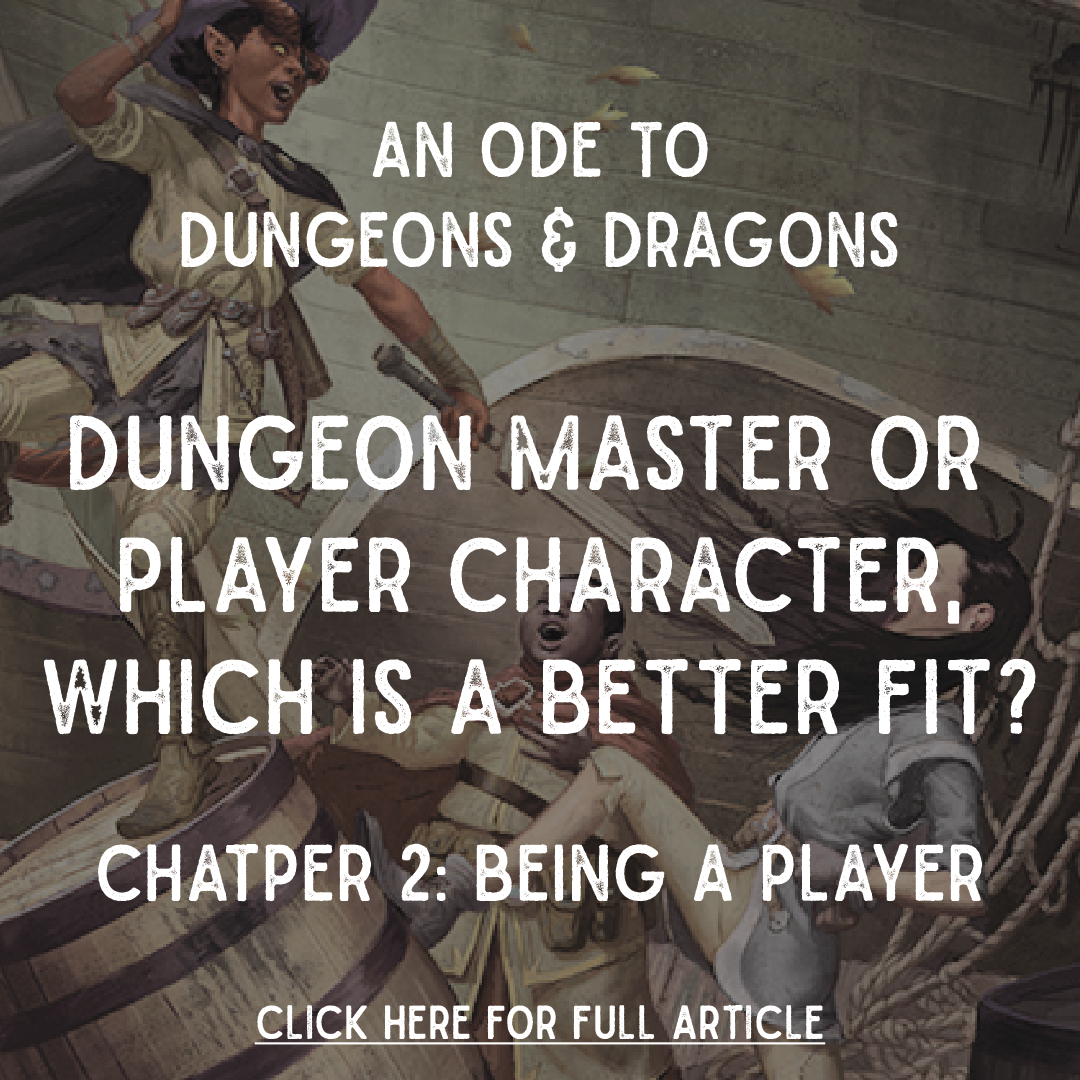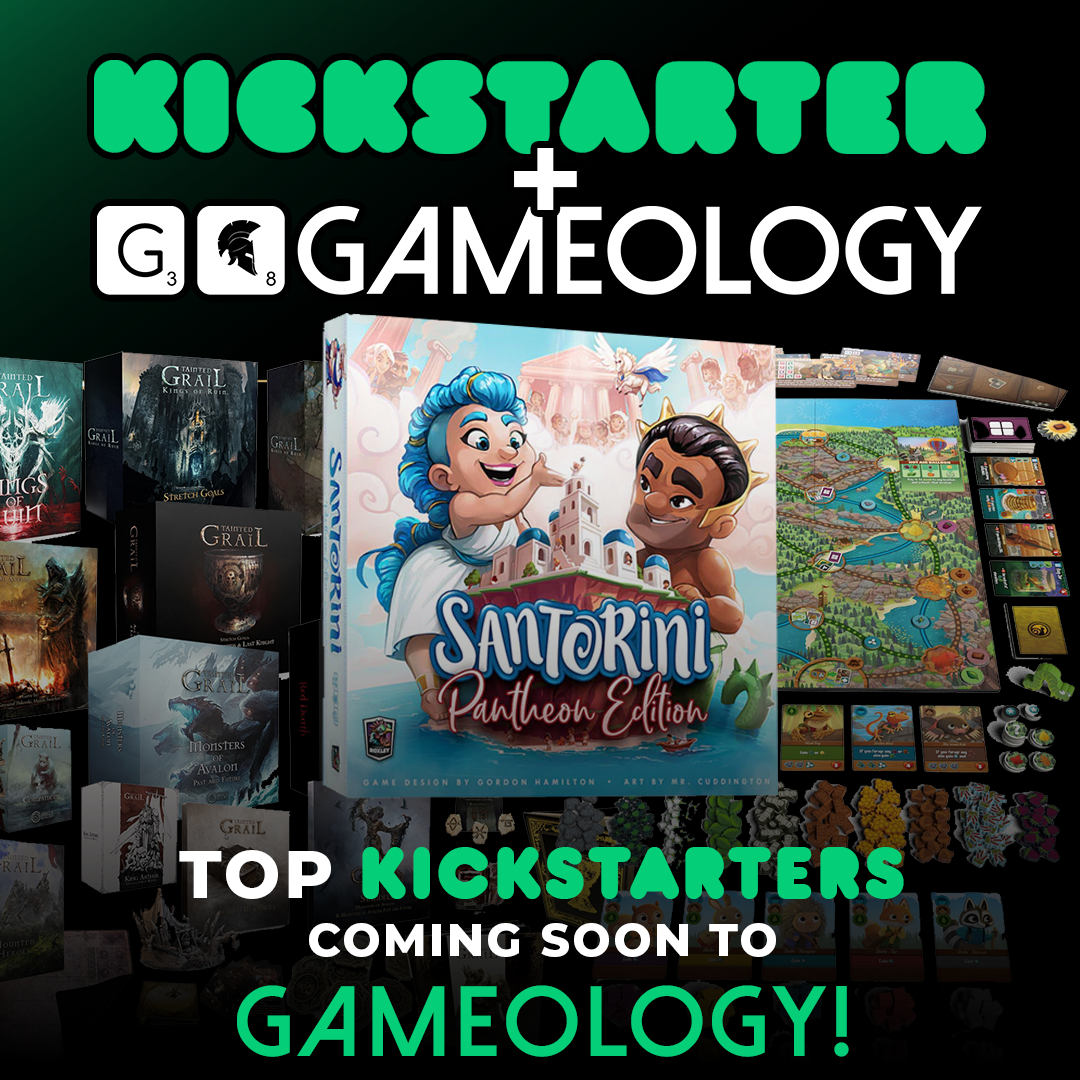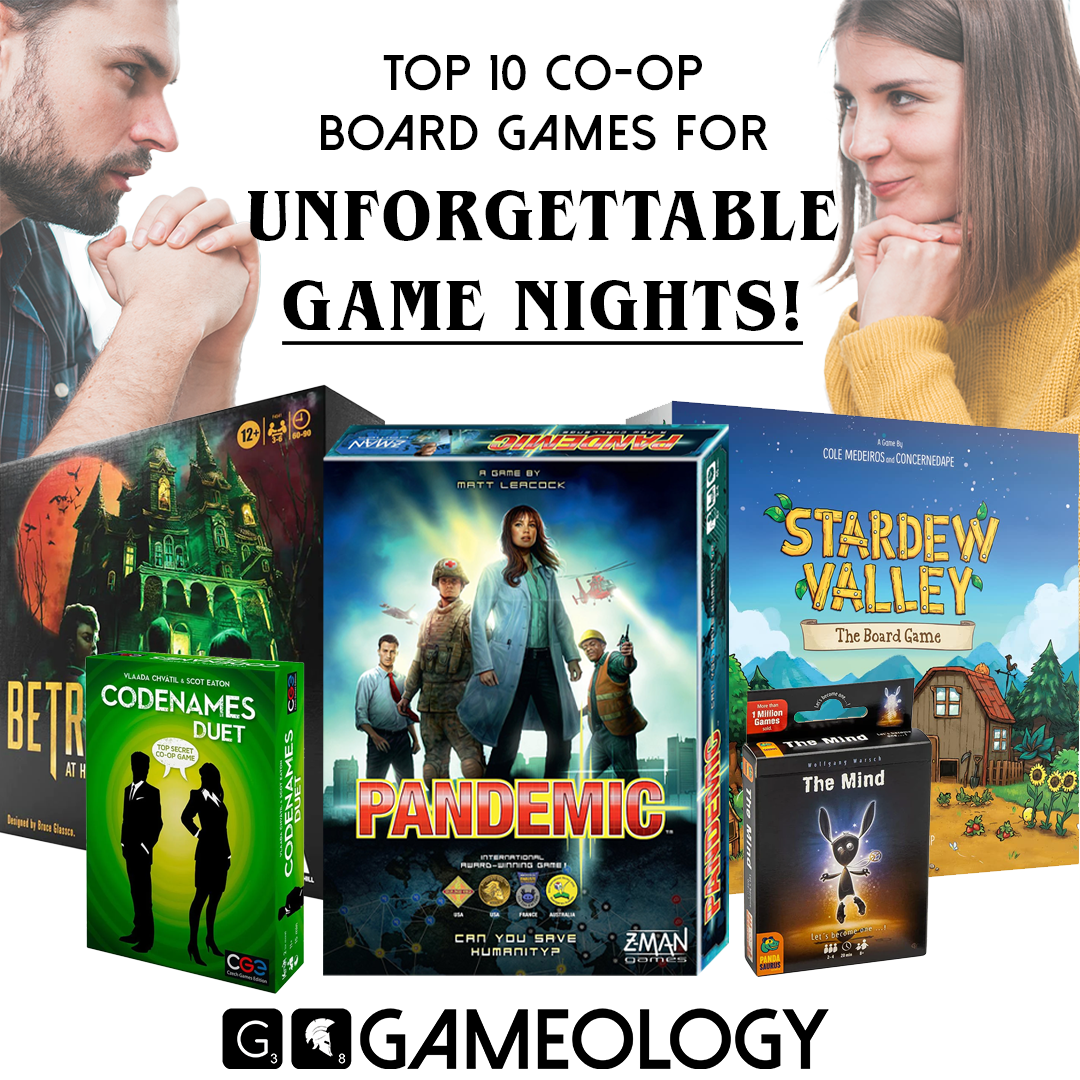If Dungeon Master is like the architect, the Player Characters are the actors. Though it may seem at first that the DM has all the creative power in D&D, don’t underestimate the little world that is your character.
Your character can be exactly like you, or they can be everything you’ve ever (or never) dreamed of being. Create your little forest gnome sorcerer with a talent for circus acrobatics and cartwheel into combat casting Chaos Bolt. Make your sexy Tabaxi monk who defeats the evil harpies with equal parts partying and punching.
The job of the Player Character is in the name—play. Thanks to the DM, for a few hours in your friend’s living room, with just a couple dice and some miniatures, you get to go to another world.

You get to be someone else. The feeling of levelling up and accessing new abilities, specialisations or spells is just as satisfying as any RPG video game. One of the best parts about being a Player Character is the element of surprise. You get to be surprised by the DM’s plot twists or funny voices. You get to surprise the DM by doing the unexpected like hitting the puzzle with your shortsword and somehow solving it. You even get to surprise yourself with your godlike (or utterly trash) dice rolls.
There’s always more than one correct answer to any social interaction, combat scenario, or puzzle and thinking up a creative solution never gets old. But what’s even better, is that you get to do all this with your friends—or soon-to-be friends! Where the DM has the powerful but solitary position of knowing and controlling everything, you and the other Player Characters (depending on their character’s alignments) are on a team.
Maybe your rogue fails to be stealthy and gets one-shot trying to sneak, so the rest of you launch a rescue mission, with the wizard teleporting to the top of the tower and putting all the guards to sleep.
Maybe you’re a bard and you distract the enemies with your Dancing Lights so your beefy barbarian friends can ‘sneak’ up behind the goblins and pummel them. Maybe you roll a natural 1 on your Witch Bolt and accidentally kill your friend (true story).

In D&D, you can make memories together. My friends and I will still reflect on moments from old campaigns as if they were moments from real life. One of the best things about D&D, and what makes me hesitate before jumping onto any other RPG campaign tabletop games, is that, in D&D, you can basically do whatever you want.
There’s a lot of rules to learn from the start, so I’ll admit, being a Player Character in D&D does have a fairly high upfront effort cost, but it is by learning these rules that you realise the true extent of your creativity. In combat, for example, you can do way more than simply smack the enemy with your scimitar. The ‘Help’ action lets you assist an ally. How? In any way you like! What does the spell Prestidigitation do? More than you’d think (including making a fake bag of gold to trick the greedy gnome selling you potions).
As an English tutor, I often say that in writing, you learn the rules just so you know how to break them. It’s similar in D&D. If you know the rules, you know the extent to which you can take them. But seriously, if you’re a Player Character, don’t complain about how much work you have to do. The DM has way more. All you need to do is make a character, show up, and be engaged. And sometimes, that last one is difficult. Perhaps your DM is having an off day (because we’re all human—IRL that is).

Perhaps you’re just losing interest in the campaign. But if you decide to be a Player, you need to be engaged. Look for clues, use your abilities, think outside the box. It’s very easy, especially in larger groups, to simply tag along—“Uhh…I follow everyone to the blacksmith.” But the truth is, you get as much as you give to the game. If you actively look for clues, the DM will open up the story to you. If you use your abilities, you really feel like you’re playing your class. If you think creatively, you get the surprise and the satisfaction of seeing your ideas actually work. So here’s the thing—without the DM, you wouldn’t have your D&D sessions.

You would just have a character, with no world to exist in, no other player’s to interact with, no monsters to beat up. If you’re only going to take one thing from this article, take this: Respect your DM. They stayed up late learning rules, devising puzzles, calculating enemy difficulties. You don’t see a lot of what they do. The least you can do is show them and their story respect by creating a character you care about (not one you’re going to throw into a 1v20 because why not), learning your rules and limits, and engaging with the story they tell you.



